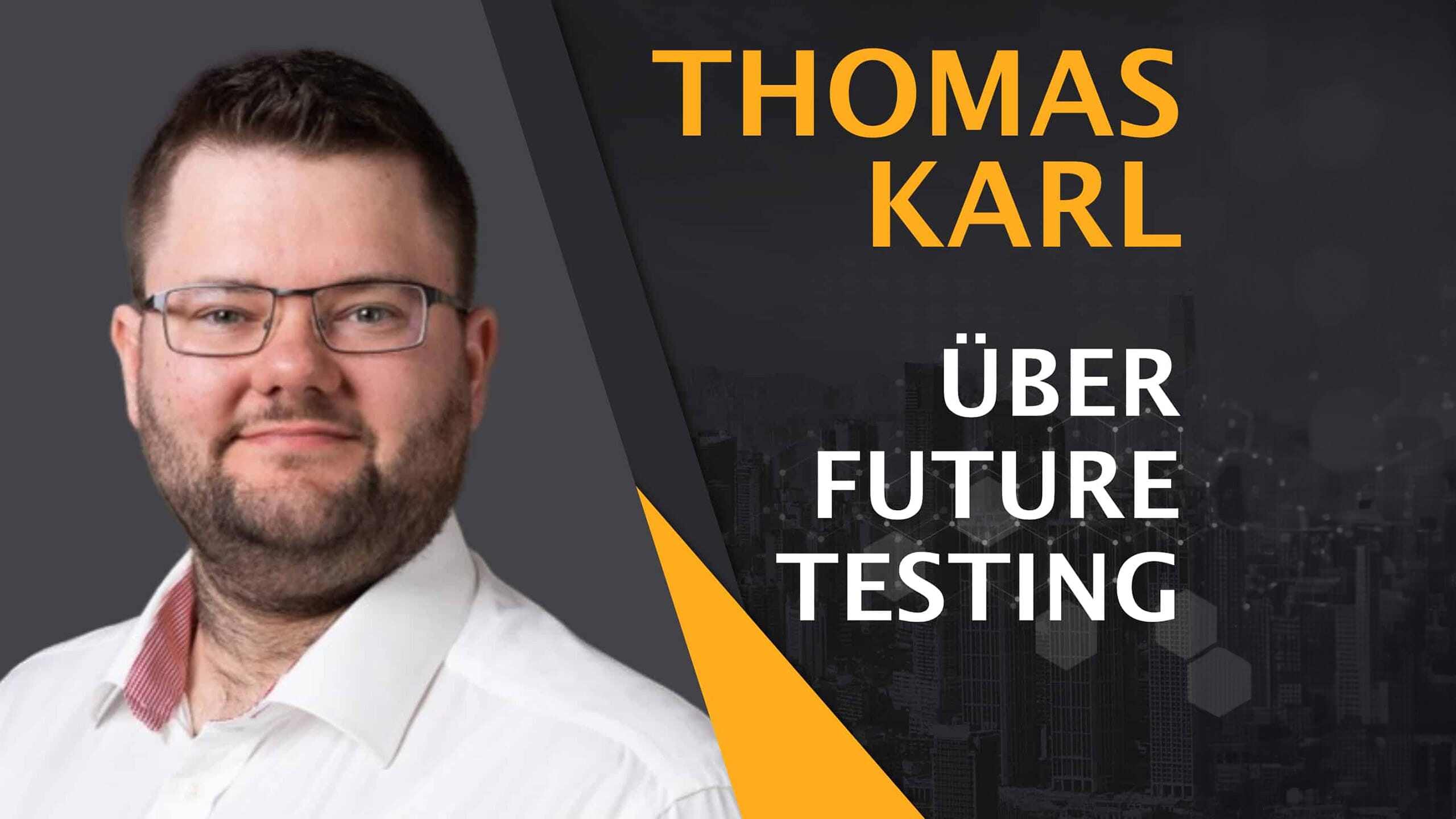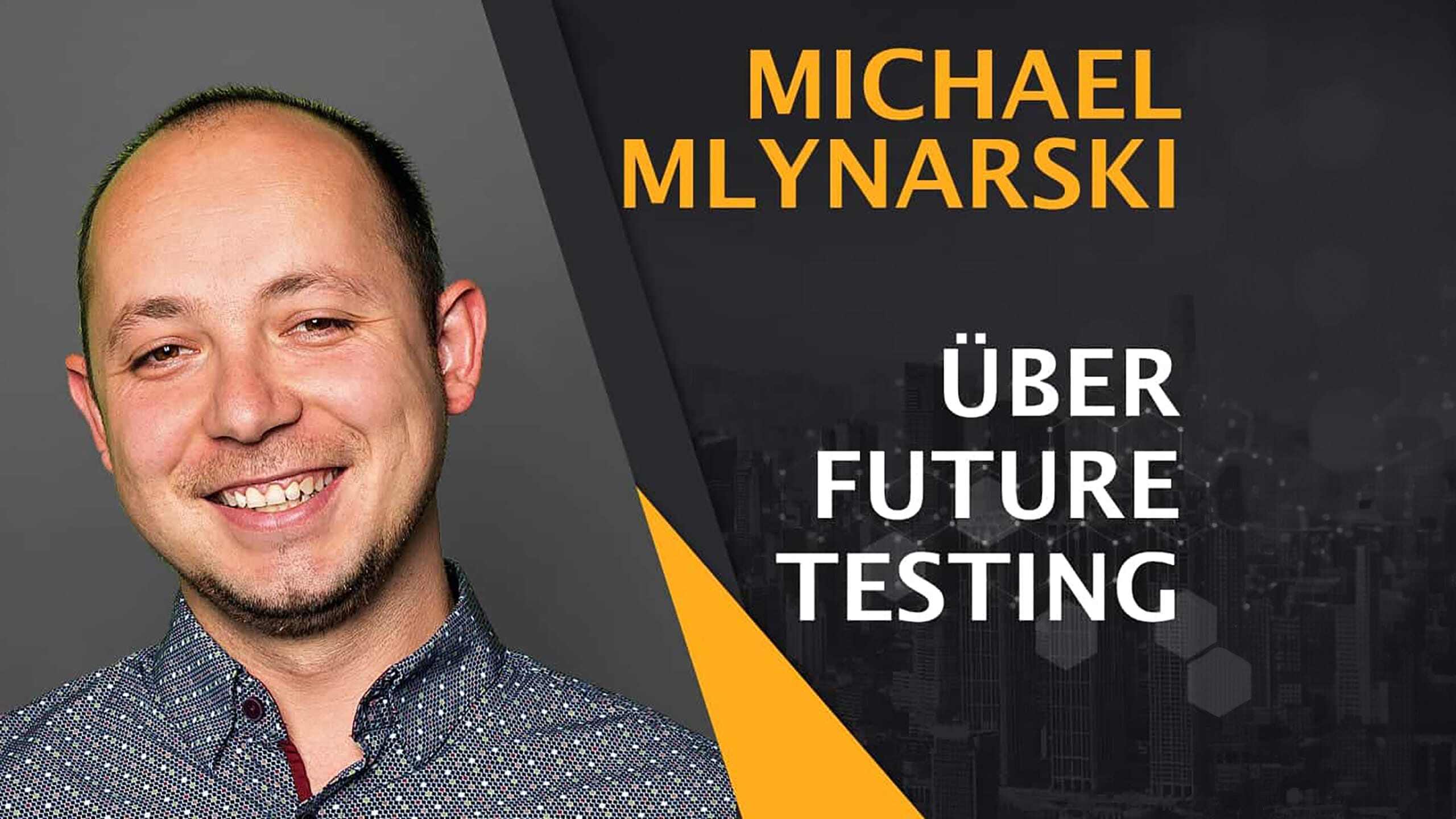Software testing in the future - Interview with Michael Mlynarski
Michael is a computer scientist who accidentally (or not) founded QualityMinds. He has around 20 years of experience in software engineering,...

Thomas Karl is Head of Quality Transformation Services and Thought Leadership Portfolio Lead of Software Engineering for Germany, Austria and Switzerland. He is an Organizational Change Manager, LSS Master Black Belt, SAFe® SPC5, IC-Agile Enterprise Agile and Transformation Coach, ISTQB Full Advanced Level certified, Kanban Trainer and Systemic Coach. His work focuses on quality management and the development of lean-agile organizations from team to strategy and portfolio level. He can look back on more than ten years of experience in lean-agile transformations and process improvements of complex international large-scale projects. He is an author and speaker at international conferences and advises board members and managers on digital transformation using agile methods.
I find it very difficult to give a general answer to this question, as the situation depends very much on the context and company in question. In general, I think that software has become an integral part of our lives. Quality has become the central requirement. However, this importance of software quality is not yet reflected in the prioritization in companies and also in the minds of many, which must change in the future. In my view, the quality mindset must become more widespread and more important.
In general, I think that software testing is still partly looking for its place in the agile world and that the focus for software quality assurance will have to include the topic of process quality as standard in the future.
Although testing faces many new challenges, it also offers new opportunities for the business side in the modern version as quality engineering.
Further information on the different levels of testing can be found in the HoaQ Blog.
Together with Nico Liedl and the expertise of many other colleagues, I wrote the book “The House of agile Quality”. Based on our many years of practical experience, we have described a structured approach to how software quality assurance can be successfully designed in an agile environment and what needs to be considered during an agile transformation. The tried-and-tested, pragmatic HoaQ framework has already helped many companies to master the challenges of large solution development projects. HoaQ fills the gap between agile frameworks and test frameworks on the one hand and bridges the strategic and tactical level of lean quality management on the other.
The concept is made up of five areas:
The basis is the test foundation. Without the working methods contained therein and the necessary methodological approaches, the desired results in quality assurance cannot be achieved.
Three pillars build on this:
The roof Lean Agile Quality Engineering Methods completes the house and includes more complex methods and techniques.
The five components are broken down into further sub-areas in order to make the transformation manageable and thus iteratively develop a lean QM strategy.
Predictive is the key term here, which I believe will change the industry. From the original reactive testing approach to the current proactive approach, the trend is clearly moving towards predictive quality engineering. In other words, the mix of big data analytics, AI systems, robotic process automation approaches and the ability to generate test environments on demand via cloud solutions will take software quality assurance to a whole new level. AI-based optimization of test coverage, self-healing test automation etc. is already being used successfully and I am convinced that this is just the beginning. However, in my view, the consistent use of these technologies is also essential, as high-quality software is one of the key cornerstones of digitalization. Software has become a part of our lives and will become even more important in the future. Whether it’s a smartphone, fitness bracelet, navigation system, car, ticket machine, supermarket checkout, computer at work or other everyday things. All of this will only work as intended if the associated software works flawlessly. Errors are no longer simply forgiven and quality has become the central requirement for software.
Further information on the relevance of quality engineering can be found in the
In my opinion, continuous learning and training is the key to success. I see three very important strands here:

Michael is a computer scientist who accidentally (or not) founded QualityMinds. He has around 20 years of experience in software engineering,...

Florian Fieber is the founder and managing director of QualityDojo IT-Consulting GmbH in Berlin and has been working as a consultant and trainer in...

Bettina Buchholz is Strategic Lead for Quality Assurance & Test at DB Netz AG and is Product Owner of the test-focused CI/CD pipeline MoQ-AP (Modular...